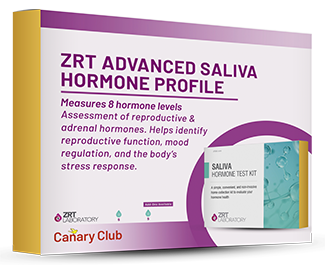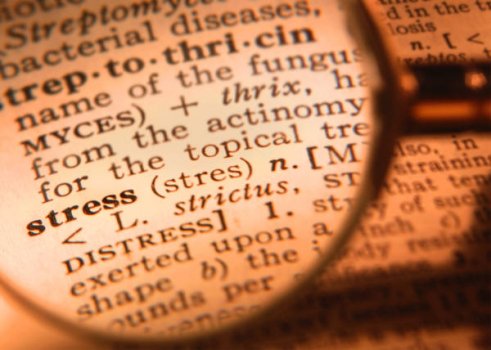Stress-induced adrenal fatigue/burnout is another pandemic happening right now.
 Chronic stress and anxiety can lead to chronic exhaustion that never goes away, no matter how much rest or sleep you get. This is the main symptom of adrenal fatigue or adrenal burnout. This article examines the causes, symptoms and steps for recovery from adrenal stress, as well as decodes 20 myths associated with this condition.
Chronic stress and anxiety can lead to chronic exhaustion that never goes away, no matter how much rest or sleep you get. This is the main symptom of adrenal fatigue or adrenal burnout. This article examines the causes, symptoms and steps for recovery from adrenal stress, as well as decodes 20 myths associated with this condition.
WHAT ARE THE ADRENAL GLANDS?
The adrenal glands are rounded, disc-shaped glands about 3-4 inches across. One sits atop each kidney, located on either side of your lower back, just above where the ribs end.
The adrenal glands are essential for life. They secrete a number of hormones that prepare our bodies to respond to stress.
These include adrenalin, also called epinephrine, noradrenalin, also called norepinephrine, cortisol, and cortisone. The adrenal glands also produce aldosterone, estrogens, testosterone, progesterone, pregnenolone, and DHEA.
These hormones regulate many body activities. The adrenal hormones, particularly adrenalin and cortisol, activate the body’s fight-or-flight response. This may include increasing the amount of glucose or sugar in the blood, raising blood pressure, and promoting increased energy production. The adrenal glands are stimulated by the activity of the sympathetic branch of the autonomic or automatic nervous system of the body. This is the part of our nervous system that activates when we must respond to threats to our life.
ADRENAL FATIGUE VS. ADREN
AL BURNOUT
Adrenal fatigue is a colloquial term for low functioning or under-activity of the adrenal glands, caused by prolonged overproduction of adrenaline and cortisol hormones. It may also be termed adrenal insufficiency or adrenal exhaustion.
Adrenal burnout syndrome differs from simple fatigue in that burnout is not relieved by getting a few good nights' sleep, as is the case with fatigue.
This is the case because adrenal exhaustion is not just a sleep deficit, although that may be an aspect of the syndrome. Burnout is a deeper derangement of the body’s energy-producing system, of which fatigue is one symptom.
DETECTING ADRENAL BURNOUT
Unfortunately, when a patient complains of fatigue, depression, or other symptoms that are often related to the adrenal glands, most of the time the doctor does not ask the right questions and does not run tests of the adrenal glands. Instead, patients are told to take a vacation, given an anti-depressant, or told it is “in their head”. The right questions, however, would often be enough to assess the condition fairly accurately. These would include “How many hours of sleep are you getting?”, “Do you use caffeine or other stimulants” and “What other symptoms are you having?”. Let us examine how this can often identify adrenal burnout, even without other testing.
Signs and symptoms:
A simple and quite reliable way to assess adrenal burnout in a general sense is with signs and symptoms. A common sign, for example, is low blood pressure in the absence of other obvious causes.
Usually, the person will also often feel fatigued, even though one sleeps well. If one is not sleeping, the problem may simply be a sleep deficit. One may not feel tired, however, if you drink coffee, other caffeinated beverages, or use other stimulants.
Another common symptom is depression. Others include joint pain, cravings for sweets, pain in the low back area, and perhaps excessive thirst or craving for sweet and salty foods. Together these symptoms can help one decide if one needs further testing.
 Causes of Adrenal Fatigue/Burnout
Causes of Adrenal Fatigue/Burnout
Excessive stress, an important cause of burnout, can be from many sources. Chemical toxicity and nutritional depletion are among the physical causes. Mental, emotional, or spiritual stress may be a major factor. Financial, family or other stress may also contribute to burnout.
Any excessive stress can deplete the adrenals, especially when weakened by poor nutrition. Working too much or emotional stress are two common causes. Excessive stimulation, especially for children, is another cause. Fast-paced, high-stress, fear-based lifestyles are a sure prescription for adrenal burnout.
Prolonged high cortisol production is a common way the adrenal glands get depleted in our modern times. While cortisol is necessary for surviving short times of intense danger, it is not meant for long-term overproduction. In a domino effect, chronic stress leads to chronic high cortisol production which leads to physical stress. This has disastrous effects on the body and mind: high blood pressure, acid reflux, IBS, depression, anxiety, and the list goes on. Then when the adrenals become depleted and start underproducing cortisol, it leads to a weaker immune system, inflammation, rapid aging, and much more.
Nutritional deficiencies are a common cause of adrenal fatigue and burnout. When under stress, the need for nutrients is much greater. Carbohydrates, when excessive in the diet, stress the adrenals. Diets low in protein may also create deficiencies. Inadequate or poor-quality water affects the oxygenation of the tissues. Most diets are low in nutrients required by the adrenals. These include B-complex vitamins, vitamins A, C, and E, manganese, zinc, chromium, selenium, and other trace elements.
Toxins may also be generated within the body due to impaired digestion. When food is not properly digested, it either ferments or rots in the intestines, producing many harmful substances that are absorbed into the body.
A healthy body has the ability to eliminate many toxins on a daily basis. However, as adrenal weakness develops, the body’s ability to eliminate all toxins decreases. This produces a vicious cycle in which weaker adrenals impair the elimination of all poisons, which then further weakens the adrenals.
Electromagnetic (EMF) pollution can be a factor. Cell phones, microwave towers, and appliances like televisions, microwave ovens, computers, and routers give off strong electrical fields. Another stressor in urban areas is constant noise pollution and light pollution, affecting the nervous system and sleep.
Toxic metals and chemicals often play a large role in adrenal burnout. Everyone is exposed to thousands of chemicals in the air, water, and food. Other sources are dental materials and skin contact with chemicals. Over-the-counter and prescribed medications add to the body’s toxic load. Most people do not realize that antibiotics and many other drugs accumulate to some extent in the liver and other organs.
Chronic infections play a critical role in some cases of adrenal exhaustion. Chronic infections may originate in infected teeth or gums, though they can be located anywhere in the body. They contribute greatly to the toxic load of the body. Infections also cause inflammation and stress that must be countered using adrenal hormones such as cortisol and cortisone.
Stimulants damage the adrenal glands. They whip the adrenals. Caffeine, sugar, and alcohol are among the most common stimulants.
Less obvious but no less important stimulants may include anger, rage, arguing, hatred, loud music, fearful news, and even movies full of suspense or violence.
Other activities that may act as stimulants and must not be overlooked include vigorous exercise, sexual preoccupations, recreational drug use, or other thrills. These often provide a temporary “high”, which is caused in part by the secretion of high amounts of adrenal hormones. However, over time, this weakens the adrenals and can eventually lead to adrenal depletion and insufficiency.
Stimulant use, however, can also be a result of adrenal burnout. While stimulants can cause or contribute to adrenal weakness, some who use stimulants do so because they are in adrenal burnout already.
Unhealthy responses to stress is another cause of adrenal burnout. This includes habits of worrying or becoming angry or afraid. Don’t worry, being happy is a great prescription for adrenal burnout. This applies particularly to high-strung, nervous individuals and those with very active minds, as they are especially prone to adrenal burnout.
 SYMPTOMS OF ADRENAL BURNOUT
SYMPTOMS OF ADRENAL BURNOUT
In addition to fatigue, weakness, and often depression, symptoms often include a craving for sweets, low blood pressure, and low blood sugar. Low energy impairs every system of the body. Thus, secondary symptoms can range from impaired digestion, aches, and pains to chronic or recurring infections.
Emotional and mental symptoms:
Often, emotional and psychological symptoms are present or even predominant. Depression is very common. Apathy, despair, and even suicidal tendencies are also quite common.
Emotional instability, mood swings, bipolar disorder, anxiety, and irritability are also common symptoms associated with adrenal burnout syndrome. The world can look evil, one loses faith in people, and a hopeless attitude is not uncommon. Compulsiveness and obsessive-compulsive tendencies may be associated with adrenal burnout. One may become addicted or very attracted to excessive exercise, sex, loud music, or other forms of excitement. The unconscious goal is always the same, to stimulate the adrenals into activity.
Adrenal burnout affects every area of life. One may lose interest in friends, family, and work. Relationships often suffer when one person in the relationship goes into adrenal exhaustion. Unfortunately, many with adrenal burnout function on anger and resentment. These act as adrenal stimulants, providing a negative energy with which to function.
THE PHYSIOLOGY OF ADRENAL BURNOUT
Low cortisol: Symptoms of low cortisol production include low blood sugar, low blood pressure, low temperature, depression, joint pain, and allergies.
Multiple chemical sensitivity: This extreme allergic condition may be associated with adrenal burnout. Later, blood pressure may rise as toxic substances build up in the arteries and kidneys.
Copper toxicity: Elevated copper and low zinc related to adrenal burnout impair the immune system. Chronic infections may develop. The stage is also set for the development of degenerative conditions. Cancer, heart disease, Parkinson’s, and Alzheimer’s diseases may be end-stage results of toxic accumulation and energy depletion.
Thyroid imbalances: Often secondary to adrenal exhaustion are other glandular imbalances such as hypothyroidism. The thyroid gland and the adrenals have a very close relationship and stress on one always affects the other. Much less common is the development of secondary hyperthyroidism or overactivity of the thyroid. This may be compensation for low adrenals, as the condition will disappear as the adrenals are allowed to rest and rebuild. The adrenal glands produce estrogen and progesterone. They are the main source of these hormones after menopause. Premenstrual syndrome and hot flashes often have to do with weakened adrenal glands.
Reduced cellular energy production: Depression and apathy are often the results of low energy production in the cells. Also, cortisol provides a natural ‘high’. Thus, low cortisol can contribute to feelings of depression and even despair. Unsure if there is energy to get through the day, anxiety may occur. Irritability is common as one is less able to handle even minor stress.
Heavy metals toxicity: When the adrenals are weak, copper builds up in the body. Elevated copper enhances emotions. Panic attacks, bipolar disorder, mood swings, and schizophrenia are related to copper imbalance. As one’s energy level declines, other toxic metals build up as well. Mercury, cadmium, lead, arsenic, beryllium, and others contribute to hundreds of physical and emotional symptoms.
MYTHS ABOUT ADRENAL BURNOUT
Myth #1. Burnout is psychological. Burnout is a breakdown of the energy system of the body. Vital minerals are depleted or “burned out” (used up) and replaced by toxic metals. Psychological stress may be a cause, and burnout can affect one’s emotions and behavior. However, burnout itself is biochemical, not only psychological. Recovery may involve improving emotions and dealing with psychological issues. However, it also involves rebuilding body chemistry because it is a physical condition as well.
Myth #2. People in burnout have no energy and cannot work. Many in burnout hold full-time jobs or other active lifestyles.
They may also appear in good health. However, they are often tired or stressed. They may require stimulants in order to keep going. Some bury themselves in their work to forget how tired they feel. One can go on like this for years in some degree of adrenal burnout. This usually stops, however, when burnout gets very serious, as there is not enough energy to continue working hard and living a very active life.
Myth #3. Vigorous exercise is good for burnout. Vigorous exercise can be attractive to those with burnout. Exercise may temporarily make one feel better.
While it may provide a boost, vigorous exercise further exhausts the bodies of those in burnout. People with burnout need to reduce exercise, often to a minimum. This helps conserve their energy and helps to allow their adrenals to rebuild.
Exercise in moderation can assist circulation and oxygenation, factors that may help with burnout. However, excessive exercise of any kind uses up energy and adrenal reserves that individuals in burnout do not have and cannot afford to lose.
Myth #4. A vacation, a diet, or a nutritional supplement can cause recovery from burnout. Most people never recover from burnout, although they could if they followed a nutritional balancing program to the letter. Recovery also requires a strong commitment to healing. Recovery also takes at least several years. If one recovers faster, one was not in adrenal burnout.
Myth #5. Burnout occurs mainly in men. In fact, it is more common in women today. This is due mainly to lifestyle changes in women.
Many women now work outside the home and raise children as well. Many are also in single-parent homes or both parents work just to pay the bills and taxes. Women are also more prone to copper toxicity, thyroid imbalances, and other factors that can contribute to adrenal burnout. Women also do not realize in most cases they are different from men and have greater needs for rest and sleep. For all these reasons, we see more burnout in women today than in men.
Myth #6. Burnout only occurs in those in high-stress jobs. Burnout occurs in all groups, regardless of occupation, income, or educational level. In fact, many homeless people are burned out. This helps account for why they may give up hope or be incapable of holding a job or supporting a home. In addition, burnout is a worldwide phenomenon today and is not limited to certain parts of the globe.
Myth #7. Burnout occurs only in adults. In fact, it is common today in children and even babies. Most children today are being born nutritionally depleted and toxic as a result of the ill health of their parents. This can be measured by mineral analysis.
Minimal brain dysfunction, chronic ear or other infections, crib death, delayed development, learning disorders, failure to thrive, ADHD, autism and anti-social behavior may all be symptoms related to adrenal dysfunction in our children. Vaccination, wholesale drugging of children, and other abominations led by our public health authorities and the medical profession are only making the problems worse in the long term. Children usually respond very rapidly to a nutritional balancing program. This is not at all the same as throwing a lot of good food and vitamins at a child. It must be targeted, based on a properly performed and correctly interpreted hair mineral analysis. I teach this science to anyone who will listen.
Myth #8. Burnout affects only physical health. Burnout affects every area of life. Family and work are often affected. Relationships often suffer. One may lose interest in everyone and everything. There simply is not enough energy available for intimate relationships or for activities beyond those required for survival. Friends, family, and employers are often unaware of what is occurring, which only worsens the situation.
Myth #9. A hectic lifestyle causes burnout. This may be one of many causes. Oddly, however, a hectic lifestyle can also be a result of burnout.
Excessive activity, overwork, and a very busy life can be a way to stimulate one into action and compensation for feelings of exhaustion. When such a one stops working and running around, he will feel just how exhausted and perhaps depressed he really is. A hectic lifestyle can, therefore, be a stimulant, like the caffeine of loud music. It always makes burnout worse, but it may be the result of burnout, not the original cause.
Myth #10. Overwork for years causes burnout. This is possible. However, adrenal burnout may also occur quickly due to a single shock or just a few traumas that occur in rapid succession. In some cases, however, it is not related to any single trauma or activity. Often a combination of factors causes burnout. Whether one goes into burnout from an illness, accident, divorce, overwork or other stress depends very much on one’s ability to handle stress, rather than the absolute amount of stress. In other words, some people handle stress and trauma far better than others. For this reason, we recommend a grounding, centering meditation to everyone with adrenal exhaustion. For more information about this, click on the article on this website entitled, Meditation.
Myth #11. Burnout is an overused term without a scientific basis. Just because burnout doesn’t show up on X-rays or certain blood tests does not mean it is not real. Burnout can be measured and quantified using tissue mineral testing and hormone testing. The term is not overused. In fact, it is greatly underused. A large percentage of the population is in burnout and it would be helpful if physicians understood it better, even if they have no drug “cure” for it.
Myth #12. Plenty of sleep will take care of burnout. Unfortunately, this is not so. The person in burnout is unable to regenerate him/herself adequately during sleep. In fact, waking up tired after 8-10 hours of sleep is a primary symptom of burnout. Like a weak battery, the body does not recharge itself during sleep.
Myth #13. Cleaning out toxins will take care of burnout. The accumulation of toxins that occurs as the body can no longer remove them properly contributes to burnout. Exposure to toxic metals or chemicals can be an important factor in burnout. Eliminating them is helpful. However, energy is required to release toxins. If the energy system is weak, just fasting or detoxifying will not be enough. Fasting, in fact, can and usually does make the situation worse. One must rebuild the entire energy system by balancing body chemistry and providing nutrients as well. A one-month or even six-month ‘cleanse’ is nowhere near adequate. It can take over a year just to replenish one mineral.
Warning - For those in later stages of burnout, extreme detoxification programs such as fasting, raw foods, or even chelating agents can be dangerous. This is because the body may lack the vitality to properly eliminate toxins. Also, the eliminative organs are compromised. As a result, toxins that such programs release from various storage tissues may be redeposited in more vital organs such as the brain. This can significantly worsen one’s health.
A gentle, complete program of rebuilding and nourishing the body must accompany any efforts to eliminate toxins. In fact, as vitality improves, toxin elimination will proceed on its own.
Myth # 14. One will come out of burnout when one changes whatever factor or behavior caused the burnout. This means that if you just quit your stressful job or your stressful marriage, you will recover from burnout.
Unfortunately, this is not how it works. As one goes into burnout, vital minerals become depleted, and toxic substances replace them. The toxic metals become part of the structure of enzymes and even parts of organs and glands. For this reason, although one changes one’s diet, lifestyle, attitudes, or behavior, the toxins remain. This is very frustrating for people who expect a recovery after they leave a stressful situation such as a bad marriage, for instance.
Myth #15. To recover from burnout, just reestablish close communication with those who are close to you. This is the cure for burnout in one popular book. Re-establishing excellent communication with those you love is always helpful. However, in my experience, it is usually not enough.
In fact, it can be a source of frustration. The reasons for this are:
1. As stated earlier in this paper, your loved ones often do not and cannot understand what has happened to you.
2. Burnout often affects your perception and attitudes. Therefore re-establishing good relationships can be complex.
3. Burnout is usually a multi-faceted problem that demands a complete approach than just communicating better.
Myth #16. To get out of burnout, one needs to get back in touch with oneself. As with myth #15, this is an excellent concept, but in my experience is not nearly enough for recovery. One reason is that getting in touch with oneself is often complicated when the brain has excessive toxins, thanks to adrenal exhaustion. Burnout, for example, often causes terribly low self-esteem because one’s energy is low and thinking is foggy or clouded. Adrenal burnout causes most of its victims to become overly introspective. This is helpful in some ways, but damaging in others. The positive side of this is discussed at the end of this paper and is very important not to miss.
Myth # 17. One can recover from burnout in a matter of months. It takes at least two years and often longer. Layers of toxins, infections, and other adaptations and compensations must be undone. Each adaptation uses up energy so that when one begins correction, there is little energy to work with. This slows progress and is one reason correction takes several years.
Eliminating toxins that have become integral parts of the organs and glands also takes time, like rebuilding a house. Also, most people must replenish twenty or thirty trace minerals. This takes time, even if one does all the correct procedures to restore one’s health. If one recovers in months, I would assume one was not in severe burnout. However, often, a small recovery can feel like a cure when it is not. As an analogy, those in burnout need an overhaul, not a tune-up. One needs to commit to doing whatever it takes and devote a few years to healing. This needs to become one’s primary occupation or job for a while, allowing all other interests and activities to become secondary to the commitment to healing.
Myth #18. Burnout is not an important medical problem unless the stress of burnout causes high blood pressure or another symptom. Burnout is degenerative exhaustion. It sets the stage for all degenerative diseases because energy is a common denominator of health.
All illnesses start with fatigue. The body is like a newer car with power steering, power brakes, and power windows. When the power goes down, the entire car stops working right. Burnout is a serious medical problem, although symptoms may be vague and unrelated to a specific disease.
Myth #19. Burnout is a new phenomenon. In fact, burnout is as old as humanity. Understanding adrenal exhaustion can even help us understand the rise and fall of civilizations. For example, it is known that many great civilizations, including perhaps our own, have fallen slowly or even suddenly. Why does this occur?
One way to understand the fall is that the people, as a whole, go into adrenal burnout and cannot sustain the intellectual, cultural, and social traditions of the culture. Wise leaders and strong traditions become replaced with vulgar habits, lower moral standards, and leaders who sway the people’s passions but do not appeal to their higher sensitivities. Constant wars, as occurred in Europe, can also contribute to burnout. Toxic technology can also take its toll. The Roman Republic was famous for its lead water pipes, for example. We are famous for our medical drug cures and surgeries, both of which involve a lot of toxic chemicals. The industrialization has brought large amounts of toxic metals into our homes, air, water, and food.
Even oppressive political and economic systems can contribute to some nations. This is a problem with the socialist and fascist ideologies that spring up around the world. They repress the people and, as a result, the people do not function well after a time.
Freedom, in contrast, tends to help people live better and function better. This was the goal of the founders of America, of course.
Myth #20. Burnout only affects one generation at a time. This is perhaps the most pernicious aspect of burnout. Children born to burned-out parents will be born nutritionally weaker and thus more prone to adrenal fatigue. Children today are going into burnout, as a result, at a younger and younger age. So the story of adrenal exhaustion cuts across generational lives. This was ably demonstrated by Dr. Weston Price, DDS, in his classic book Nutrition and Physical Degeneration. Melting pot nations like America have an advantage in this regard. New immigrants are often the more ambitious ones that are in better health and can help rejuvenate the population.
Also, nations that emphasize freedom and individual rights allow people to devise better ways of coping and maintaining their health than those that are stuck in rigid prescribed social structures.
RECOVERY FROM ADRENAL BURNOUT
 Recovery from burnout is certainly possible. Lifestyle changes include:
Recovery from burnout is certainly possible. Lifestyle changes include:
- Dietary changes to enrich your nutrition and reduce carbohydrates and stimulants. We also recommend the addition of high-quality nutritional supplements, including essential fatty acids from fish oil.
- Stress reduction, including moderate exercise and taking more time for yourself. It’s helpful to make a list of your stressors, especially those that are constant. Cut out or minimize things that cause stress, as much as possible. Make space in your daily routine for quietude, meditation, cardio, gentle stretching, reading a book, enjoying a hormone-boosting tea... anything that soothes your soul. Schedule it like a business meeting or doctor's appointment to help you commit and take care of yourself.
- Get more rest. Your body needs time to heal. Rest and sleep are both essential for health and well-being.
Addressing all these aspects is the way to assure success. The preceding are general suggestions only. If possible, work with a practitioner specializing in hormone balancing.
Based on Excerpts from Lawrence Wilson, MD
Marcy Holmes, Women’s Health NP, Certified Menopause Clinician
Jacob Farin, N.D.
RECOMMENDED TESTS
Canary Club has a wide variety of at-home hormone and neurotransmitter tests from which to choose. These can indicate imbalances that cause or exacerbate chronic anxiety. This information is a great first step on the path to long-term well-being. Here is a short list of recommended tests: Canary Club is the place where you can come to better understand your condition, whether it is mild, moderate, or severe. Our goal is to help you find the information you need in order to effectively manage stress and live a more vibrant and vital life.
ZRT Advanced Saliva Profile
 See our ZRT Advanced Saliva Profile to check your adrenal and reproductive hormone levels.
See our ZRT Advanced Saliva Profile to check your adrenal and reproductive hormone levels.
Advanced Saliva Test Kit Includes:
- Estradiol (E2), Progesterone (Pg), and Testosterone (T) - known as the three major sex steroid hormones,
- Adrenal Hormones:
- DHEA-S (DS), and,
- Diurnal Cortisol (sampled 4x), showing your full daily cortisol cycle.
Canary Club Advanced Saliva Hormone Profile is also known as ZRT Saliva Profile III.
Available Add-ons:
You will be able to include these add-ons during the ordering process for the Advanced Saliva Profile.
Available add-ons: E1 Estrone and E3 Estriol
Additional Stress-Related Tests
- Cortisol Awakening Response
- Adrenal Stress Test
- Diurnal Cortisol 4x
- Women's Sex & Stress Hormone Panel
Additional Resources:

 Causes of Adrenal Fatigue/Burnout
Causes of Adrenal Fatigue/Burnout SYMPTOMS OF ADRENAL BURNOUT
SYMPTOMS OF ADRENAL BURNOUT